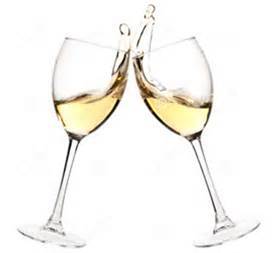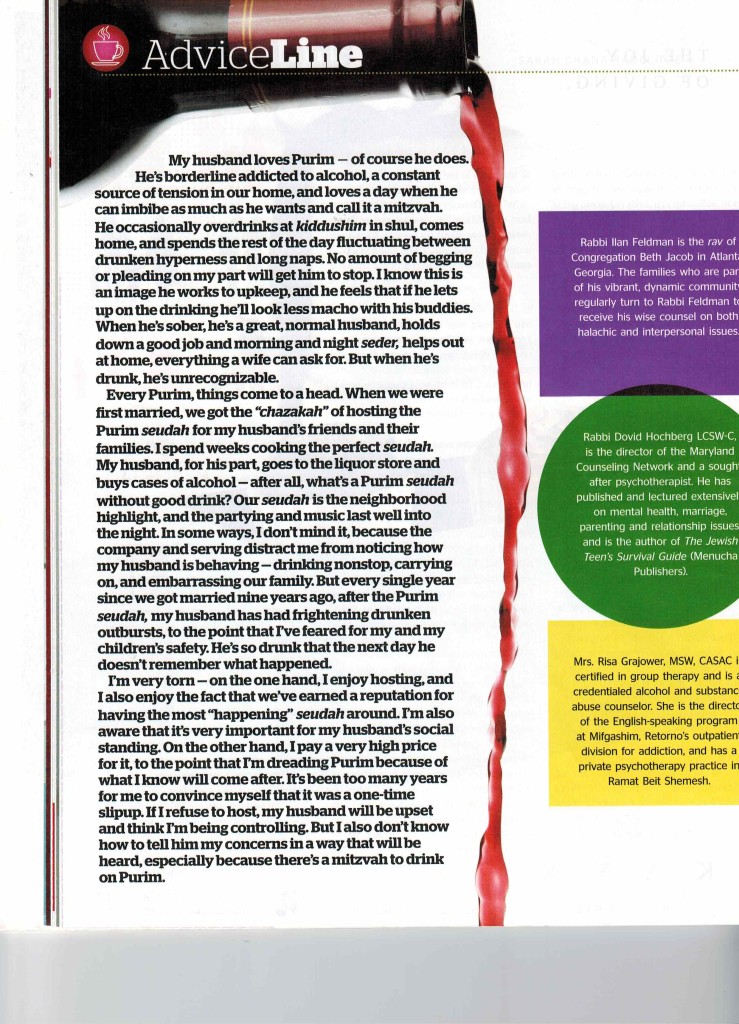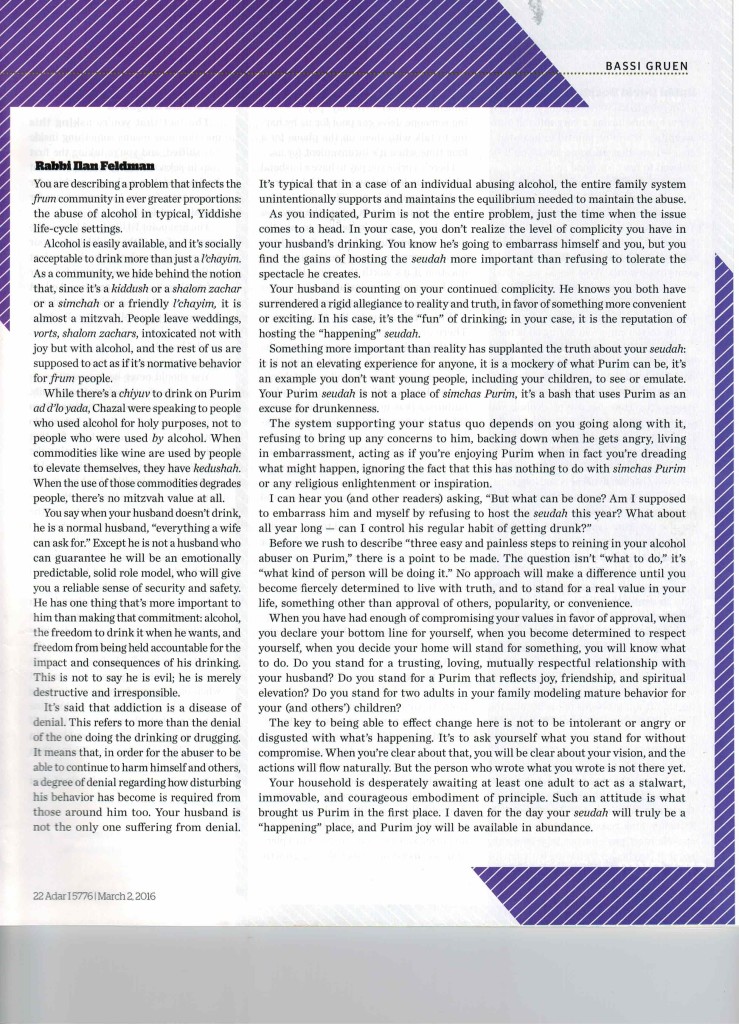 The Talmud describes a Mitzvah to drink on Purim until he does not know the difference between “Cursed is Haman, and blessed is Mordechai” which we discuss on take Ten for Talmud Megila 7- Drinking Wine on Purim.
The Talmud describes a Mitzvah to drink on Purim until he does not know the difference between “Cursed is Haman, and blessed is Mordechai” which we discuss on take Ten for Talmud Megila 7- Drinking Wine on Purim.
Following this statement, the Talmud relates a story of a terrible accident which occurred as a result of excessive drinking, and the Shulchan Aruch suggests that as a result of the accident, the Halachic conclusion is that “Some say this is unnecessary. A person should drink more than he is accustomed to.” (Shulchan Aruch 695:2) Indeed, it is said that the Chofetz Chayim drank a bit of wine on Purim, and declared, “We sometimes drink that amount during the year.” So he drank a second time and declared his obligation fulfilled. In Biur Halacha the Chofetz Chayim writes, “A person is obligated to increase his joy on this day regarding food and drink, such that there is nothing that he is lacking. Nevertheless, there is no obligation for us to degrade ourselves. The obligation to rejoice refers not to frivolous and foolishness, but rather to joy of enjoyment that will bring us to love Hashem and thank Him for the miracles. (Biur Halcha 695, quoting Meiri)
One of the most remarkable commentaries on the topic is that of teh Yad Efraim (printed on the page of Shulchan Aruch in many editions). What is so remarkable about his insight is that it reconciles the idea of drinking a bit more (but not excessively) with the original statement of the Talmud that a person should drink until he does not know the difference. He says, “The point of this mitzvah is to rejoice. It follows that one should not drink so much that he loses his ability to contemplate the miracle. This is what they meant when they said, “until he does not know,” until, but not inclusive. From that point on, his drinking would be counterproductive. (Yad Efraim commentary to SA 695)
In our time there have been instances where people experience a drinking problem, but hide it behind the guise of the Mitzvah to drink. Sometimes this exists on Shabbos, but most significantly it exists in some places on Purim. It is important to recognize a drinking problem for what it is, and reach our for professional help. Following is an article from Family First (mishpacha.com) March 2, 2016 containing a message from Rabbi Ilan Feldman of Atlanta.



0 Comments